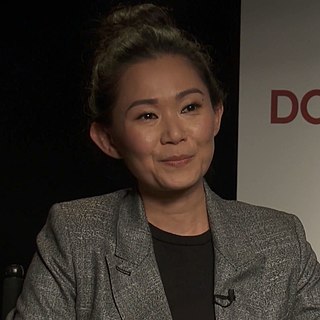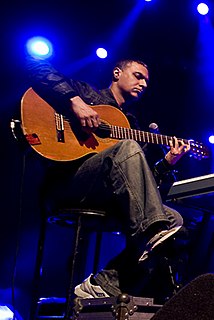A Quote by Fernando Lamas
When a person has an accent, it means he can speak one more language than you
Related Quotes
When you hear somebody speaking in an accent, it's almost like they're invading your language while they're speaking to you because if you hear someone speak another language, you almost don't care. But when they speak your language with an accent, it feels like an invasion of something that belongs to you. And, immediately, we change.
Thank God, I have sort of a pan-European accent rather than Russian, which doesn't sound very pleasantly to Americans. For them, we speak with a rather rude pitch, and that might be our actors' problem there. Now I've begun working with language coaches in Los Angeles to get rid of the accent completely.
Then I speak to her in a language she has never heard, I speak to her in Spanish, in the tongue of the long, crepuscular verses of Díaz Casanueva; in that language in which Joaquín Edwards preaches nationalism. My discourse is profound; I speak with eloquence and seduction; my words, more than from me, issue from the warm nights, from the many solitary nights on the Red Sea, and when the tiny dancer puts her arm around my neck, I understand that she understands. Magnificent language!




































